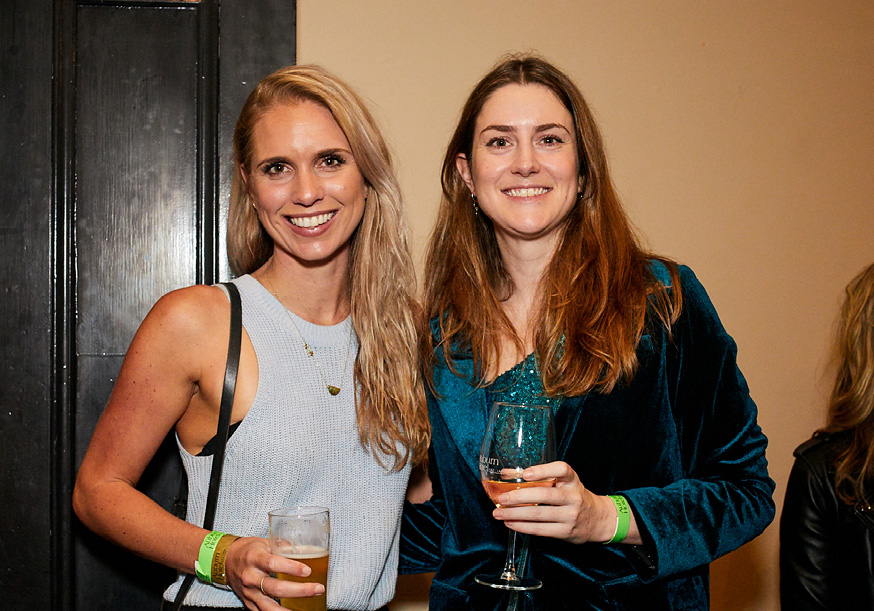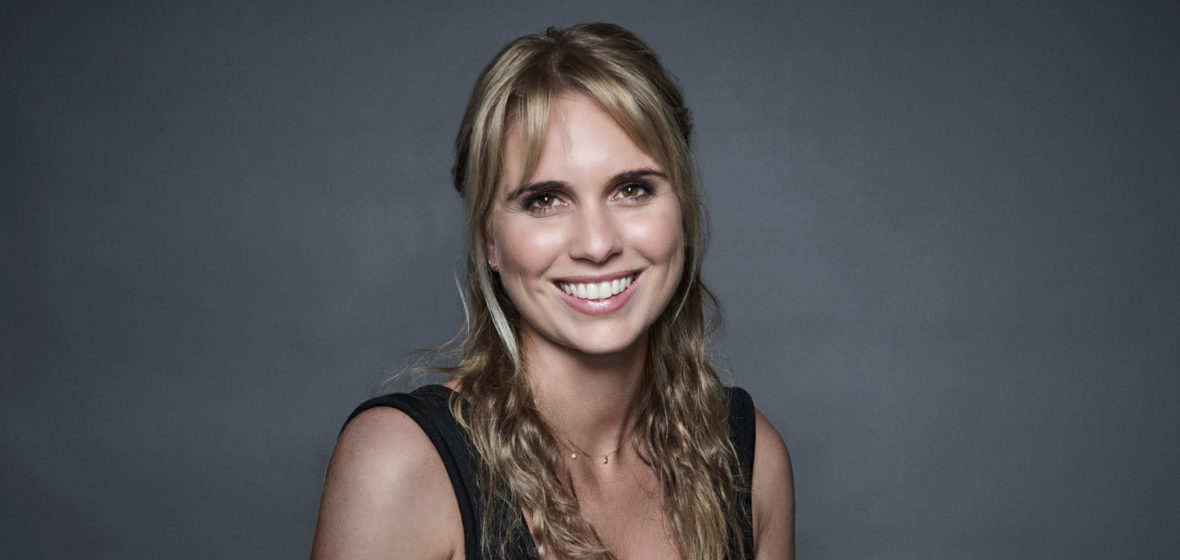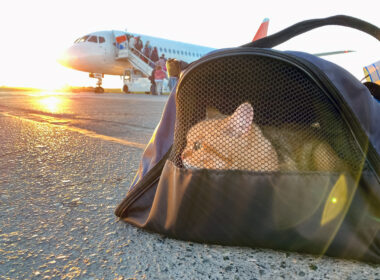Two hours after the ballots closed on the night of the 2022 Federal election, Kiera Peacock wove her way through the teal-tinted throng at Melbourne’s Auburn Hotel, gathering place for Monique Ryan’s supporters.
Ryan was taking on then-Treasurer Josh Frydenberg for the Melbourne seat of Kooyong. Ryan’s campaign manager, Ann Capling, announced: “This is the lawyer!” “Everyone turned to me and just cheered,” says Peacock. “The energy in the room that night was an absolute highlight.”
Peacock, a partner at Sydney-based law firm Marque Lawyers, is the lawyer who helped establish Climate 200, the community crowd-funded initiative that supported 23 independent candidates at the election.
She also worked directly with several independent campaigns that have shaken up Australian politics and formed an historically large Lower House crossbench, including Ryan, Zali Steggall and Allegra Spender. Peacock also prepared the Federal Court challenge, led by Ryan and Capling, that saw the Australian Electoral Commission (AEC) backtrack on restrictive COVID-19 telephone voting rules.
“I’ve always been interested in social justice and the way that government impacts on the lives of people,” Peacock tells LSJ over lunch at the Old Fitzroy Hotel in Woolloomooloo. “I grew up in Campbelltown in south-western Sydney, not a particularly wealthy area. You see the impact of government policy on people’s lives every day.”
“What happened this election is a reminder of the different levels at which change can be achieved – at a broader level, but also by every single vote that is cast, no matter who you are or where you live.”
The most heart-warming thing for me was that all these people really just wanted to vote, something that we often take for granted
High risk, high stakes
Apart from a brief post-university stint as a clerk in a large law firm, Peacock has spent her professional life at Marque, beginning in 2011 as a paralegal.
Today she is a corporate litigator and a social enterprise, human rights and electoral law specialist, “Australia’s best and most knowledgeable electoral lawyer”, according to her Marque bio. This despite Peacock’s admission that she can’t recall any mention of the Commonwealth Electoral Act during her law degree at the University of Technology Sydney.
Unsurprisingly for an electoral lawyer, the days leading up to election day were some of the busiest and most stressful of her career. “Climate 200 was a fairly unique set-up,” says Peacock. “It allowed people to donate to the cause rather than to the election campaign of a particular person.”
“The Commonwealth Electoral Act is quite a prescriptive Act, originally drafted in 1918, much of it still based on old English law. This Act never contemplated independents as being a force and it certainly never contemplated third parties of the nature of Climate 200.
“It felt like a big responsibility to be advising on that, because it’s very high risk, with high stakes. There is also an added pressure of dealing with areas of the law the AEC has publicly said that it wants changed.
“I wasn’t doing it on my own, of course. I had great partners I could always consult for a sense check.”
In 2019, Climate 200 disbursed about $400,000 in donations to a handful of independent candidates in the 2019 election. This election, it raised $13 million for almost two dozen community-backed independents.
“Both Climate 200 and the candidates I worked with had been in campaign mode since September. You could see how much people had invested – financially, time-wise and emotionally.”
Too late to vote?
The roiling political environment was also buffeted by the effects of the COVID-19 pandemic. The AEC had enacted telephone voting laws to ensure people could vote remotely but, says Peacock, when they came into effect on the Tuesday night before the election, “it became apparent that a whole number of people would be disenfranchised if they tested positive to COVID-19 prior to the 6pm cut-off on Tuesday and hadn’t registered for postal voting.”
Ryan’s team was contacted by constituents who were worried about not being able to vote, and the team set Peacock to look at what could be done. “We decided on the Thursday to go ahead and challenge it. We obviously needed to get some action before election day so that people could actually vote if the laws changed to permit this.”
Peacock contacted potential plaintiffs caught by the laws – up to 100,000 Australians were estimated to be affected. “One girl with COVID-19 woke up and realised she was an hour too late to register for the postal votes. Some parents couldn’t vote because they were looking after children with COVID-19.”
“We worked through Thursday night to have everything shaped up to then go to the Federal Court to challenge. But, after some early discussions with the lawyers for the government, the Special Minister of State announced that they’d extend the telephone voting rules.”
At 1.30pm on the day before polling day, after 28 straight hours of preparations, Peacock and her team finally received confirmation that the rules would be extended.

“The most heart-warming thing for me was that all these people really just wanted to vote, something that we often take for granted,” says Peacock.
“When I called one of the plaintiffs and said she could vote, she told me it was her first election and going from having no chance of voting to being able to 24 hours later was wonderful. It felt deeply satisfying being able to put a face to the notion of enfranchising people.”
Instead of heading off for a few hours of sleep, Peacock, says, she “went and voted because I was concerned that if any other urgent matters sprang up, I wouldn’t be able to vote on election day!”
That day was now just hours away. Peacock kept checking news feeds for any spot fires. “We didn’t know what would happen – No one ever knows what’s going to happen on the day of an election.”
Acting on signs of deception
Wading through the sea of political paraphernalia at the voting booth, Peacock reflected on a case she ran in the 2019 election. She was acting for plaintiffs who brought Court of Disputed Returns proceedings against two Liberal MPs, Gladys Liu and Josh Frydenberg. It wasn’t based on anything the MPs had done personally, but election day signs went up in their electorates, which had significant Chinese populations, that said in Chinese script that the correct way to vote was to put one next to the Liberal candidate. The signs were in the AEC’s purple and white, with no party insignia.
“A lot of people felt that was misleading or deceptive, and so we brought those challenges to get clarity from the Court on what was considered misleading or deceptive in our elections. Prior to that there wasn’t any real authority on this.”
Peacock’s team obtained declarations in this Court that the signs were illegal, which she believes had a significant impact on the 2022 election. “There were multiple instances of people who were either stopped before they displayed material or the AEC taking action in respect of some signs which were put up by groups such as Advance Australia.”
“The AEC got an enforceable undertaking from Advance Australia and that situation is potentially being referred to the AFP for prosecution. I don’t think that would’ve happened without the case we ran, and it seemed to have had a stabilising effect on what people are producing.”
After a fitful but uneventful night, Peacock went for an early run “I snapped a photo of the beautiful sunrise – I must have felt something in the air.”
She ran past a polling station festooned with Allegra Spender banners, fulfilled her second compulsory civic duty by having a democracy sausage, and immediately the calls began.
Peacock’s phone buzzed with issues such as councils taking down signs and people needing advice about whether they could reinstate them or challenge councils’ power. “Councils fairly commonly overstep because there’s this whole untested area about how much a council can stop people from exercising their political freedoms. This issue was raised in the Goldstein case but not determined by the court (independent Zoe Daniel successfully challenged Bayside Council’s ruling that corflutes could not go up before an election was officially called).”
Peacock took a call about volunteers at one Sydney polling booth telling people they didn’t need to vote if they weren’t sure. Another caller said voters were being told they didn’t need to number the ballot paper. “On the day, and also during pre-polling, you’re often dealing with curly questions and minor squabbles relating to positions of authority: local councils, police at polling booths, where volunteers for other parties are standing and what they’re saying.”
A lot of the nasty election ads we’re used to seeing end with a hurried voice at the end saying ‘authorised by X’. All political material needs to be authorised. It is one of the only political advertising requirements in the law that the AEC can take action over and it doesn’t actually regulate the content.
“But those incidents were in the minority. There actually seemed to be an amazingly collegiate atmosphere among all the volunteers, regardless of who they were there for.”
The most serious issue Peacock dealt with on election day was a challenge to the authorisation for some of Ryan’s signs that were in Chinese script. The Liberal Party of Victoria alleged that they’d been improperly authorised because Ryan’s name wasn’t also in Chinese script. Peacock says that the real issue about authorisations is that it raises the critical issue of why truth in advertising laws are needed.
“A lot of the nasty election ads we’re used to seeing end with a hurried voice at the end saying ‘authorised by X’. All political material needs to be authorised. It is one of the only political advertising requirements in the law that the AEC can take action over and it doesn’t actually regulate the content.”
“While I can see the benefit of authorisation, it strikes me as odd that it’s fine to know who produces election material, but you can’t do anything about what it says. It’s why defamation quite commonly happens in politics or in election campaigns.”
Peacock adds, “You don’t want to place either express or implicit burdens on what people might say in the context of elections. We have freedom of political communication and the idea is that you can freely engage in political discourse. But we do have clear examples of lies in advertising.”
In 1983, an amendment to the Electoral Act was passed to effectively prohibit untrue, misleading or deceptive statements during an election. But this amendment was repealed in 1984, before being tested during an election.
“Truth in political advertising is a bit of a misnomer because you can’t regulate truth, but you can prohibit lies,” Peacock says. “I also think there can be room for greater responsibility by candidates and parties (rather than individuals) to ensure that they are not disseminating false or misleading material. That could be coupled with the creation of new rights to take action about the material which aren’t as extreme as going to court. For example, an affected individual or the AEC could issue a substantiation notice to an entity, making statements capable of objective substantiation. Much of what we see as problematic could be, but is not, objectively substantiated.”
“While the AEC is obviously very conscious of not suppressing legitimate discourse, creating more steps for intervention which don’t necessarily go to court level means more options for enforcement. If the only remedy is going to court, and that happens on election day, by the time an issue is resolved everyone has voted.”
How our system works
Peacock adds, “It’s easy to look back now and think of what we achieved, but we had no idea back then when the election would be and how long we had to get everything achieved.”
“We have courts, we have Parliament, we have the executive. And so it’s hugely important for each of them to challenge the other
“When people can see that the government is held to account, they have more faith in the system, in the health of our democracy. It also helps society see that the government can’t just do things and not be challenged about it, that people can stand up. And I think that’s a really beautiful thing.”




